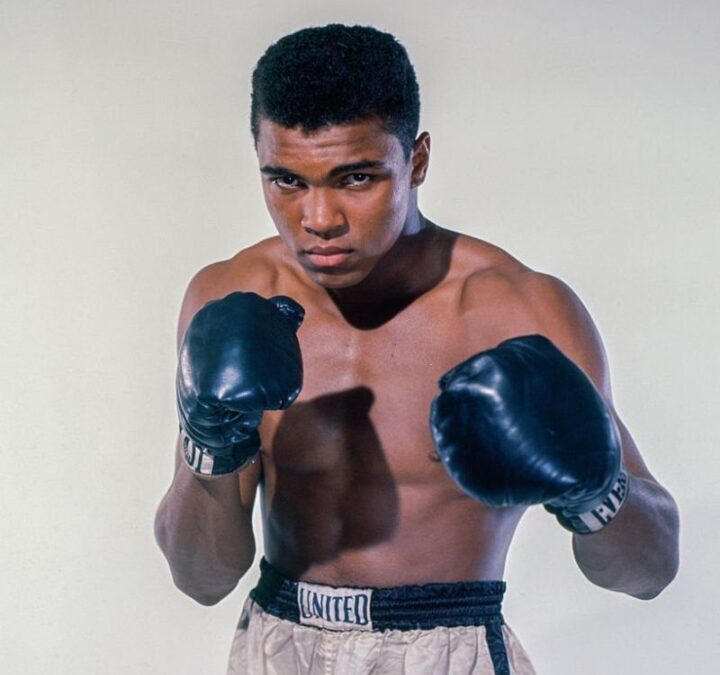Muhammad Ali is without doubt one of the greatest boxers in history. His unique style, charismatic personality and commitment to civil rights have made him a true icon of sport and popular culture. In this article, we take a look back at the life and career of Muhammad Ali, focusing on his most famous fights and his lasting legacy.
Mohamed Ali’s childhood
Born Cassius Marcellus Clay Jr. in 1942 in Louisville, Kentucky, Mohamed Ali grew up in a poor neighborhood. His family faced financial difficulties and had to work hard to make ends meet. In addition, Ali had to contend with the racial segregation that was then a reality in 1940s and 1950s America.
The first boxing club where Muhammad Ali trained was the Columbia Gym in Louisville, Kentucky. It was there that he was introduced to boxing by a Louisville policeman, Joe Martin, who recognized his potential when he saw his agility and speed in a local park. Martin soon became Ali’s personal trainer and helped him develop his fighting skills and technique.
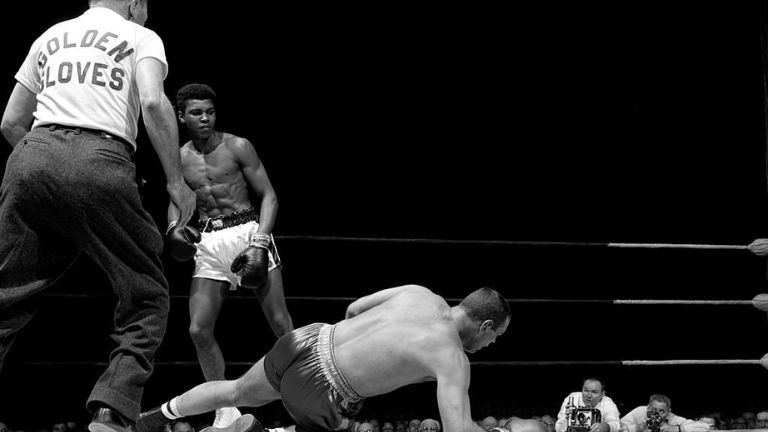
Columbia Gym became the place where Ali trained for numerous amateur boxing competitions, winning several national titles. The club played an essential role in Ali’s boxing career, helping him to hone his skills and develop his unique fighting style. It was also where he began to forge his extraordinary personality and his taste for provocation and repartee.
Despite these obstacles, Ali showed a remarkable talent for boxing from an early age. He trained regularly from the age of 12 and soon began winning amateur boxing competitions. His fighting technique was impressive, with great speed and remarkable precision.
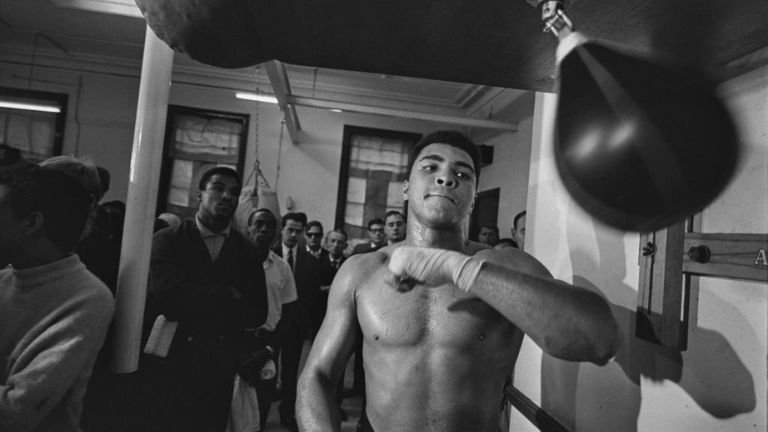
In 1960, Ali represented the United States at the Olympic Games in Rome, where he won a boxing gold medal in the light-heavyweight category. This victory was a turning point in his career, but despite his success, he continued to face racial discrimination and social injustice.
Indeed, as a young black boxer, Ali faced racist and discriminatory attitudes in many aspects of his life, even as he won victories and titles. But this didn’t dampen his determination to become one of the greatest boxers of all time.
In 1960, Mohamed Ali won the gold medal in the light-heavyweight category at the Olympic Games in Rome. It was on this occasion that he came to the attention of legendary trainer Angelo Dundee, who was to mentor him throughout his career.
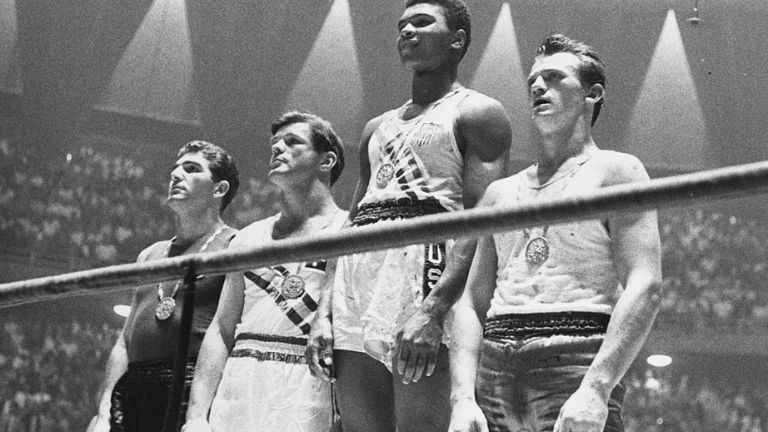
The start of a legendary career
After winning a gold medal at the Rome Olympics in 1960, Muhammad Ali decided to embark on a professional boxing career. He began competing in professional bouts as early as 1960, quickly racking up victories and making a name for himself in the boxing world.
Ali’s boxing style was very particular and unique. He was characterized by great speed, incredible agility and the ability to take his opponents’ punches thanks to his defensive technique, known as the « butterfly dance ». This technique consisted in dodging his opponents’ blows by moving quickly and fluidly around the ring.
In 1964, Ali won his first world heavyweight title, beating Sonny Liston in the seventh round. This victory was considered a remarkable feat, as Liston was then considered one of the best boxers of the time. Ali proved that he was capable of competing with the best, and this victory marked the start of a legendary career.
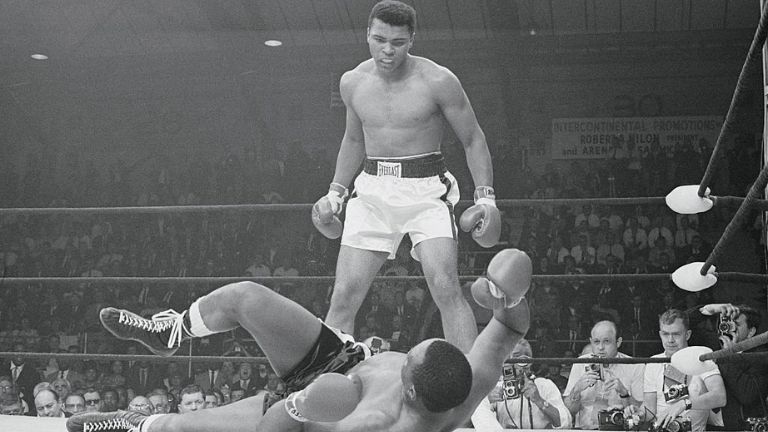
Muhammad Ali and Malcolm X
The friendship between Malcolm X and Mohamed Ali was very strong and special. Malcolm X was an African-American civil rights activist and an influential leader of the Nation of Islam, a religious organization to which Mohamed Ali converted in the 1960s. The two men shared a similar vision of the struggle for racial equality and became close friends.
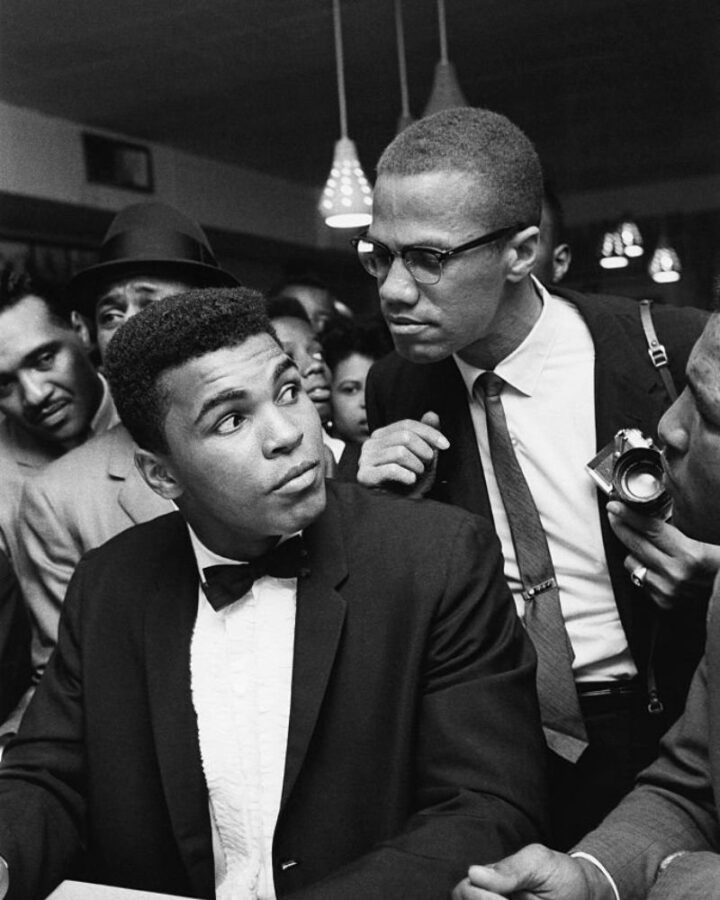
Malcolm X was a mentor and advisor to Muhammad Ali, helping him to build his self-confidence and shape his public image. Ali was also inspired by Malcolm X‘s rhetoric, which influenced his own discourse on the pride and dignity of the African-American community.
However, their friendship was shaken after Malcolm X left the Nation of Islam and publicly criticized its leader, Elijah Muhammad. Muhammad Ali remained loyal to Elijah Muhammad and distanced himself from Malcolm X. But after Malcolm X’s assassination in 1965, Mohamed Ali expressed his sadness and grief at the loss of his friend and mentor.
Name change and political involvement
In 1964, shortly after winning his first world heavyweight title, Muhammad Ali announced his conversion to Islam and changed his name from Cassius Clay to Muhammad Ali. This name change was motivated by his religious belief and his rejection of slavery and white domination, which he felt were symbolized by the surname Clay, inherited from his enslaved ancestors.
Mohamed Ali’s name change was viewed controversially at the time, particularly in conservative and racist circles. Many saw the change as a provocation and an insult to American culture and the white community in general. However, Ali maintained that his name was a symbol of his freedom and dignity as a black Muslim in a country where racial discrimination was still rife.
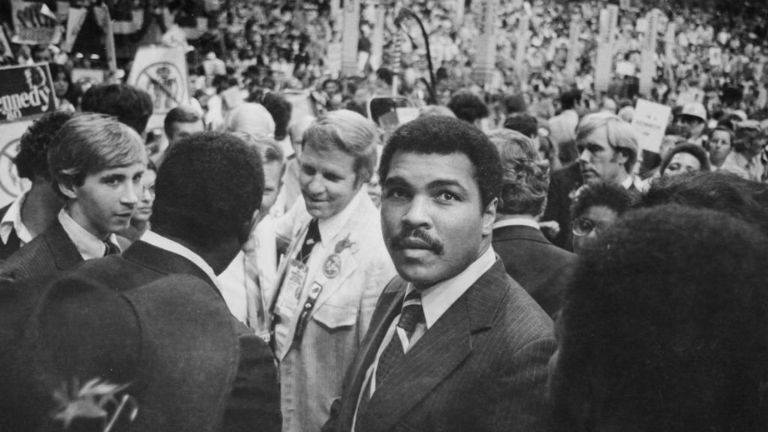
In 1967, Mohamed Ali took a controversial stand by refusing to submit to conscription for the Vietnam War. He declared that his conscience prevented him from supporting a war he considered unjust, and that as a civil rights activist, he could not fight against people he considered his brothers.
This position was criticized by many politicians and the media, as well as by a section of the American population. Muhammad Ali was suspended from boxing for over three years, a decision that had a major impact on his career and personal life. He faced numerous threats and strong pressure to reverse his decision, but he maintained his stance and finally returned to the ring in 1970, after the Supreme Court overturned his conviction for conscientious objection.
The return to the ring and legendary fights
In 1970, the Supreme Court overturned Muhammad Ali’s conviction and allowed him to return to the ring. He followed this up with a string of memorable fights, notably against Joe Frazier, George Foreman and Ken Norton.
The fight against Joe Frazier, in 1971, is undoubtedly the most famous of his career. Nicknamed « the fight of the century », it pitted two unbeaten boxers against each other and ended with Frazier winning on points after fifteen hard-fought rounds.
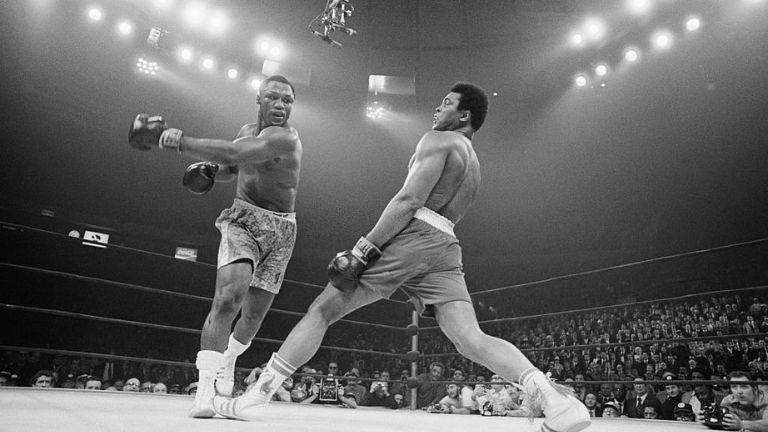
The « Rumble in the Jungle », which took place in 1974 in Kinshasa, Zaire, was one of the most talked-about events in boxing history. The fight featured Muhammad Ali, who challenged George Foreman, then reigning world champion.
The fight was highly anticipated, and Foreman was considered the clear favorite due to his punching power and impressive winning streak. But Muhammad Ali had a different strategy: he decided to let Foreman use all his energy in the opening rounds, before countering him with precise punches.
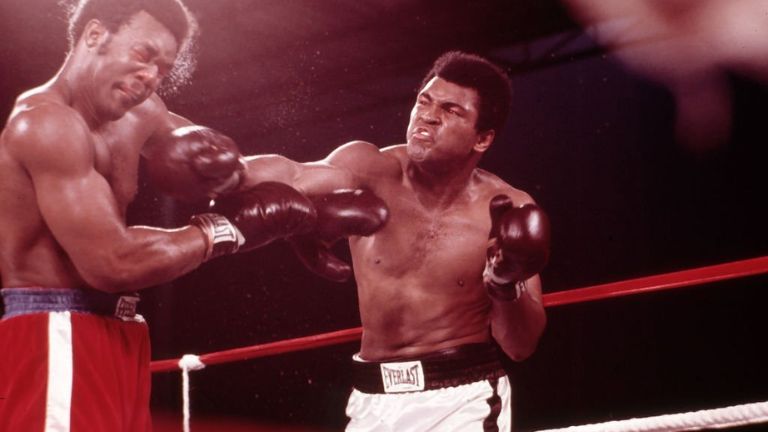
This strategy eventually paid off, and in the eighth round, Muhammad Ali delivered a decisive blow to Foreman that knocked him out. Muhammad Ali’s victory was regarded as one of the greatest reversals in boxing history, and further cemented the legend of this exceptional athlete.
. It remains one of the most memorable fights in boxing history.
The end of Mohamed Ali’s career
During the 1970s, Muhammad Ali continued to dominate the boxing world, but his tumultuous lifestyle and health problems began to take their toll. He retired in 1981, with a record of 56 wins and only 5 losses.
Mohamed Ali went on to become a tireless campaigner for civil rights and an ambassador for peace throughout the world. He received numerous awards, including the Presidential Medal of Freedom in 2005, the highest civilian honor in the United States.

Mohamed Ali’s legacy
Beyond his sporting achievements, Muhammad Ali remains an emblematic figure of popular culture and a symbol of commitment to civil rights. His influence on boxing and on American society as a whole is considerable, and many athletes and personalities around the world have been inspired by his charismatic personality and courage.
In conclusion, Muhammad Ali is not only one of the greatest boxers of all time, but also an extraordinary personality whose impact extends far beyond sport. His life and career remain a source of inspiration for generations of boxing fans and civil rights activists.
See also our article: George Foreman: The Legend of Boxing and His Legacy

